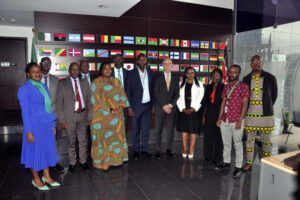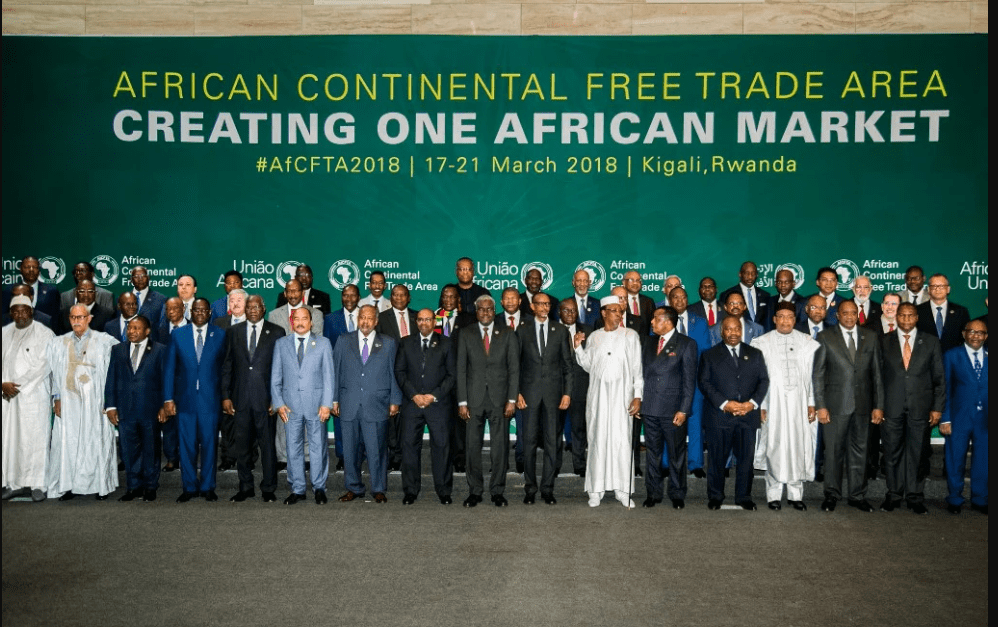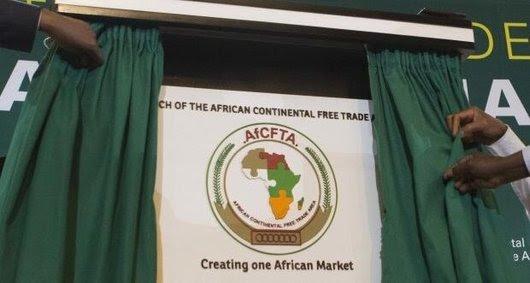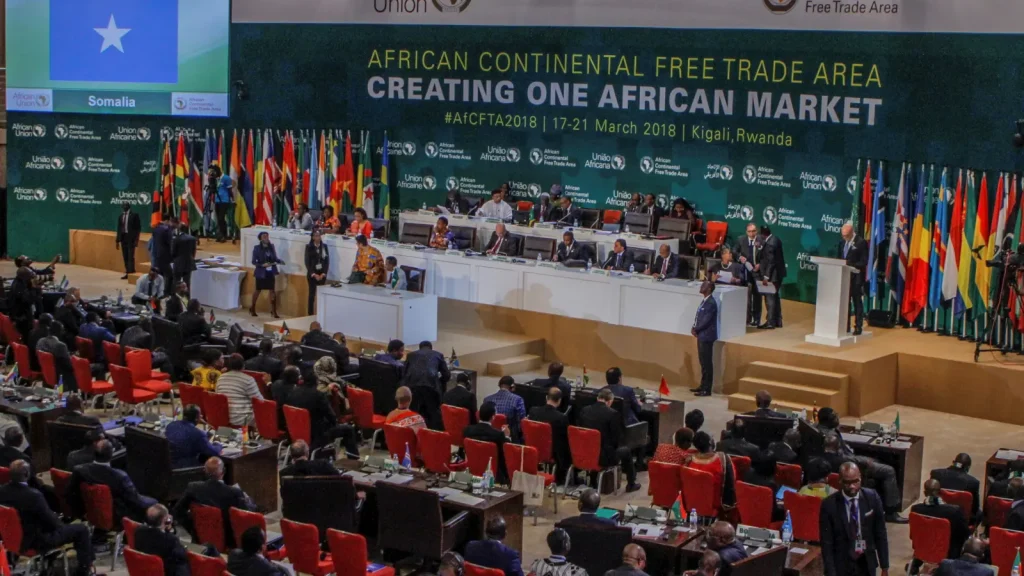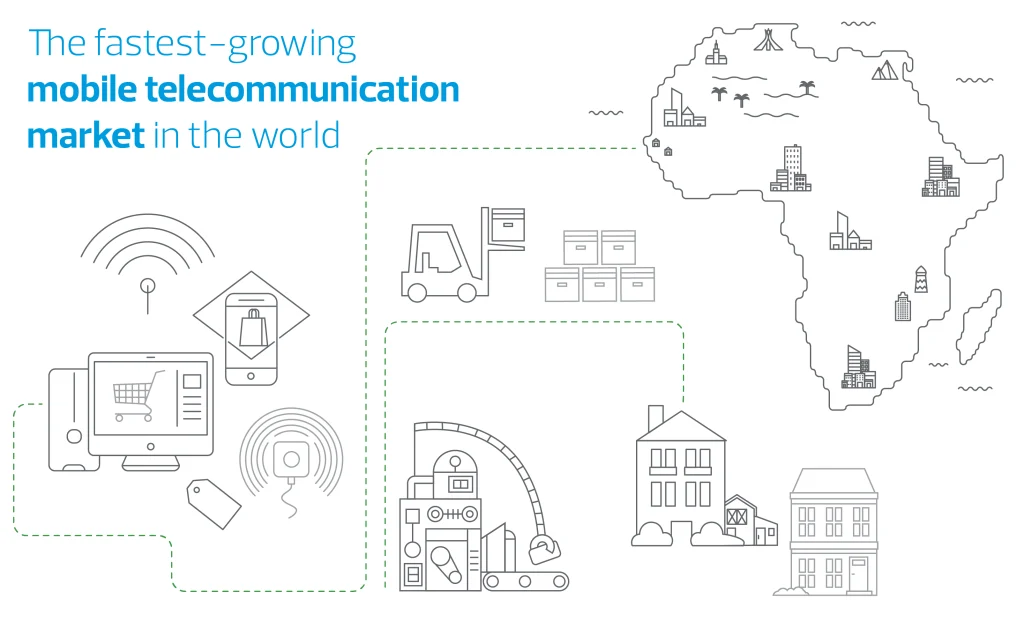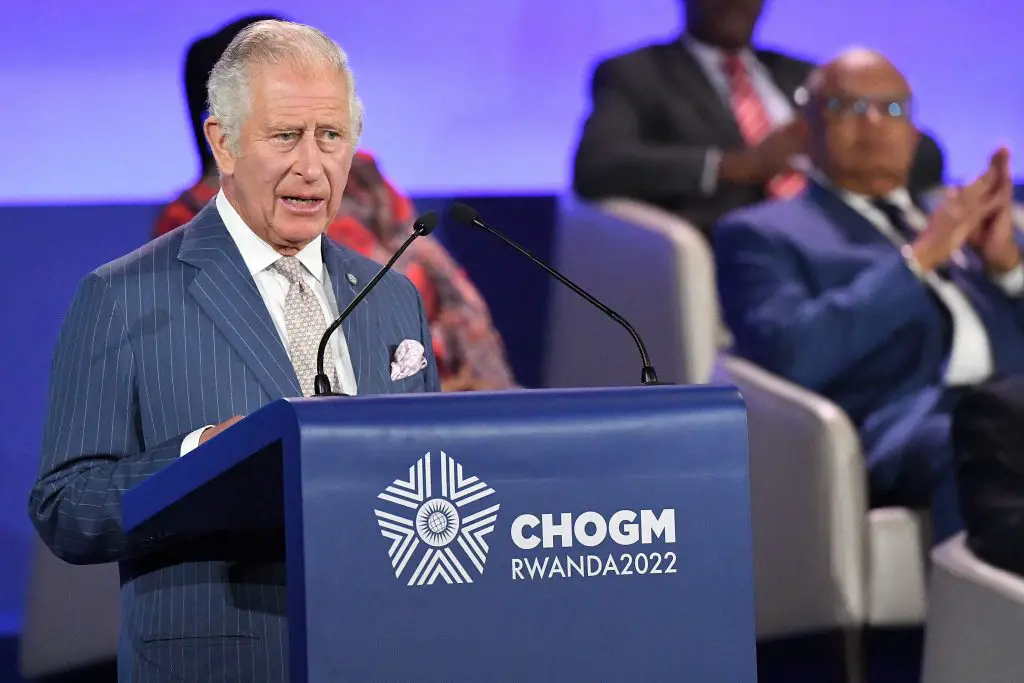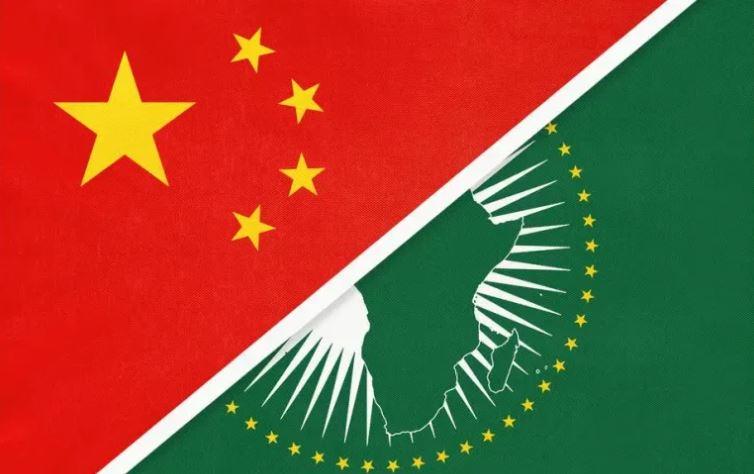- Abu Dhabi welcomes over 330 partners for AIM Congress 2024
- Kenyan Farmers Receive $2M Boost from Africa Fertiliser Financing Mechanism
- Brace for High Interest Rates for a Longer Period World Bank Warns Kenya
- Kenya-Ethiopia Trade Relations: Legislators Advocate for Policy Alignment to Boost Ties
- Visualising the state of debt in Africa 2024
- Abu Dhabi radiates optimism as over 300 startups join AIM Congress 2024
- TLcom Capital Raises $154 million in Funding to Boost Its African Growth
- Africa’s $824Bn debt, resource-backed opaque loans slowing growth — AfDB
Browsing: AfCFTA
For historic reasons, bilateral and regional trade in Africa has been hampered by trade routes designed for export away from the continent rather than for facilitating intra-Africa trade. Obstacles include long distances, inadequate transport services, and inefficient institutional and transit regimes.
In many landlocked African countries, economic centres are located several hundred kilometres away from the closest seaport. Overcoming geographic constraints or the lack of economies of scale caused by small transportation volumes is key for all countries, particularly transit countries. A renewed focus on the efficiency of transport and logistics services is long overdue, given that many countries retain policies that favour closed, small, and inefficient services markets.
By committing to no new barriers to services trade during the progressive liberalization process, at least in the five priority sectors—business, communication, financial, transport, and tourism services, and with declining trade costs—the transport sector is bound to expand.…
If fully implemented, AfCFTA could speed up wage growth for women and lift 30 million people out of extreme poverty by 2035, the World Bank report has found.
An article by Namibia Economist, dated July 29, 2022, suggests that achieving these gains will be particularly important given the economic damage caused by the COVID-19 pandemic, which is expected to cause up to US$79 billion in output losses in Africa from 2020.
- Real income gains from full implementation of the AfCFTA agreement could increase by 7 per cent, or nearly US$450 billion by 2035.
- AfCFTA would significantly boost African trade, particularly intra-regional trade in manufacturing.
- Manufacturing exports would gain the most, 62 per cent overall, with intra-Africa trade increasing by 110 per cent and exports to the rest of the world rising by 46 per cent.
COVID-19 has caused major disruptions to trade across the continent, including critical goods such as …
- The African Continental Free Trade Area (AfCFTA) Secretariat has launched an online hub to ease trade on the African continent
- The AfCFTA Hub is a focal point for national governments, intergovernmental, private, and public organisations
- It links the parties together to make way for SMEs and startups to drive the success of the African Continental Free Trade Area
The African Continental Free Trade Area (AfCFTA) Secretariat has launched an online hub to ease trade on the African continent.
The AfCFTA Hub is a focal point for national governments, and intergovernmental, private, and public organisations. It links the parties together to make way for SMEs and startups to drive the success of the African Continental Free Trade Area.
The online hub is designed to grow into a single, trusted directory of the services needed to navigate the AfCFTA for small players, thereby making the AfCFTA the most inclusive Free Trade Area …
- AfCFTA testing new tool to measure ease of trade among African countries
- Early test results indicate major gender parity issues
- AfCFTA secretariat to seek national policy change to ease cross border trade
So you wish to invest in Africa, with 51 countries to choose from, what factors are going to guide your decision? Once you have overcome that huddle, comes another matter to address and that is ‘how easy is it to do businesses between said African countries?’
The second part of the question is what we will focus on here, how easy is it to do business between and among various African countries.’ There already exist several trading blocs and free trade zones etc and finally the largest of them all the African Continental Free Trade Area (AfCFTA) has finally been passed and is in action.
So what does this mean for investors, for businesses seeking to trade between …
- Kenya’s government has been urged to address challenges manufacturers face amid the implementation of the Africa Continental Free Trade Area (AfCFTA)
- The government is yet to put in place mechanisms to ensure the country takes full advantage of the benefits of AfCFTA to manufacturers
- Dwindling country competitiveness and lack of product competitiveness
The government of Kenya has been urged to address challenges manufacturers face amid the implementation of the Africa Continental Free Trade Area (AfCFTA).
Kenya Association of Manufacturers (KAM) Acting CEO Tobias Alando noted that whereas the trade agreement provides the best opportunity to realise the regional, national and business goals, Kenya is yet to put in place mechanisms to ensure the country takes full advantage of the benefits of AfCFTA to manufacturers.
Challenges facing manufacturers in Kenya
Alando noted that the export market in Africa is expected to increase with the full implementation of AfCFTA. However, if unaddressed,
The African logistics market has proven itself ahead of the curve in many areas, with endless potential and opportunities lurking just beneath the surface.…
The United Kingdom (UK) has played a key role in participating in commercial investments in Africa in major production areas with varying results.…
Africa’s road infrastructure remains essential for landlocked countries, where opening manufacturing zones are needed. Reliable road transport is required for businesses to import and export goods, complete orders, and procure supplies.…
- China’s GDP is central to the global economy and especially in Africa
- The Asian country’s economy is integrated with nearly every sphere of global trade from manufacturing to finance and mining
- This means that when China does well economically so do African countries
The AFCFTA will transform Africa if it can be implemented.
China is an integral part of the global economic matrix. The Asian behemoth is responsible for the economic well-being of a litany of countries in the world.
Much of the economic growth enjoyed by numerous countries owes itself to and is sponsored by China’s economic activity either in whole or in part. China’s mass urbanization gave a spark to producers of natural commodities who continue to rely on the Asian country’s appetite for these natural resources for their income.
China went from being a pure-play communist republic to a hybrid capitalistic society of sorts owing to its …
The practical implementation of the AfCFTA, the expanding middle class, the evolving consumer market, enhanced use of financial technology and services, and the efficiency of the vibrant private sector will all be enablers of African export diversification and long-term economic growth.…

